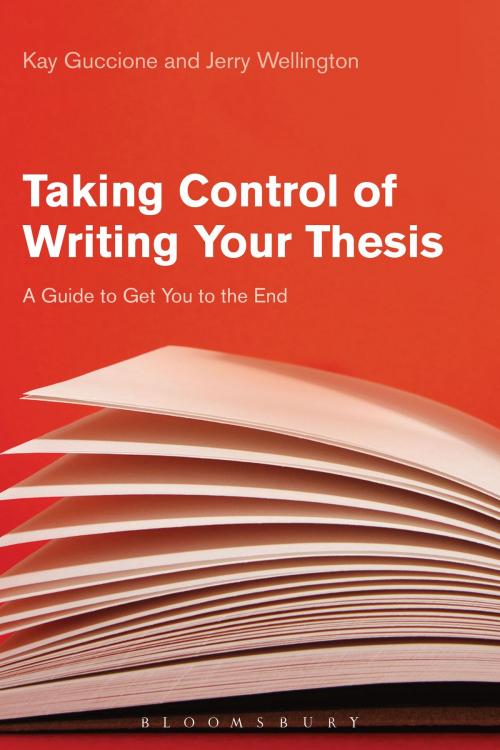Taking Control of Writing Your Thesis
A Guide to Get You to the End
Nonfiction, Reference & Language, Education & Teaching, Higher Education, Study Aids, Tests| Author: | Dr Kay Guccione, Professor Jerry Wellington | ISBN: | 9781474282970 |
| Publisher: | Bloomsbury Publishing | Publication: | October 5, 2017 |
| Imprint: | Bloomsbury Academic | Language: | English |
| Author: | Dr Kay Guccione, Professor Jerry Wellington |
| ISBN: | 9781474282970 |
| Publisher: | Bloomsbury Publishing |
| Publication: | October 5, 2017 |
| Imprint: | Bloomsbury Academic |
| Language: | English |
Taking Control of Writing Your Thesis offers a clear account of the how, what, why and who of working together so that you can produce, finish and submit a successful thesis. Guccione is a Thesis Coach and Thesis Mentoring Programme Designer and is currently researching the barriers to thesis completion; Wellington has supervised and examined numerous dissertations at MA and doctoral level. They draw on these experiences throughout in providing you with expert guidance for your thesis, informed by real student testimonies and with 'Points to Ponder' and a wealth of online resources to support you along the way.
Guccione and Wellington show that planning, writing and support for thesis writers is a collaborative venture but also one which you can take ownership of and manage. They show that there are ways to become more connected to what and who you need, and explore the collegial and peer-support structures that are there to be utilised. They situate the student within an educational context viewing them not as the lone researcher able or not able, skilled or unskilled, but as the navigator of the writing process. The authors draw on their experience to provide ways of thinking, and tools for empowering students to feel more in control of the practices of writing about research.
Taking Control of Writing Your Thesis offers a clear account of the how, what, why and who of working together so that you can produce, finish and submit a successful thesis. Guccione is a Thesis Coach and Thesis Mentoring Programme Designer and is currently researching the barriers to thesis completion; Wellington has supervised and examined numerous dissertations at MA and doctoral level. They draw on these experiences throughout in providing you with expert guidance for your thesis, informed by real student testimonies and with 'Points to Ponder' and a wealth of online resources to support you along the way.
Guccione and Wellington show that planning, writing and support for thesis writers is a collaborative venture but also one which you can take ownership of and manage. They show that there are ways to become more connected to what and who you need, and explore the collegial and peer-support structures that are there to be utilised. They situate the student within an educational context viewing them not as the lone researcher able or not able, skilled or unskilled, but as the navigator of the writing process. The authors draw on their experience to provide ways of thinking, and tools for empowering students to feel more in control of the practices of writing about research.















